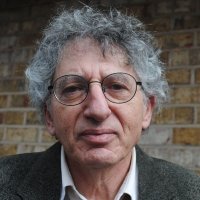Ruth Fischer: A Life For and Against Communism, 1895-1961
Ruth Fischer (1895-1961), once ranking among Germany's and Europe's most prominent women, is today largely forgotten in the English-speaking world. Right after the end of WWI, she was the co-founder of the Communist Party of Austria, became famous as the chair of the Communist Party of Germany in the Weimar Republic and, after 1945, was associated with the anti-communist crusade in the United States where she authored the best-selling book Stalin and German Communism. At the end of her life, she vainly hoped that the Soviet Union under Nikita Khrushchev would move towards a democratic variant of communism. To complete these paradoxes, Ruth Fischer should also be mentioned as the sister of two other prominent Austrian-German communists: the composer Hanns Eisler (1898-1962), a disciple and friend of Arnold Schönberg, and the journalist Gerhart Eisler (1897-1968), whom his sister would denounce as Moscow's wire-puller and most dangerous communist agent in the United States.
Mario Kessler, associate professor at the University of Potsdam, Germany will discuss Ruth Fischer's political itinerary and attempt to explain why it went to such extremes – astonishing even in the ‘Age of Extremes.' Joining the discussion as a commentator will be Jeffrey Herf, professor of modern European history at the University of Maryland, College Park.
Mario Kessler is a member of the Center for Contemporary History (ZZF) and an associate professor of History at the University of Potsdam in Germany. He has been a visiting professor at several U.S. universities, including University of Massachusetts in Amherst, Yeshiva University, and Columbus State University in Georgia. At present, Kessler is a Joan Nordell fellow at Harvard University's Houghton Library. Previously he has held research fellowships at Johns Hopkins University, King's College London, the German Historical Institute in Washington, D.C., the University of Minnesota, and the Hebrew University in Jerusalem. Among Kessler's numerous books are biographies of the German refugee scholars Arthur Rosenberg and Ossip K. Flechtheim, as well as books on the history of German and European labor movements and on historiography. He is currently writing a biography of Ruth Fischer.
Jeffrey Herf is professor of modern European history at the University of Maryland, College Park. His publications includes Divided Memory: The Nazi Past in the Two Germanys (1997), a work that included examination of "the Jewish question" in Communist East Germany, a theme that has also been examined by Mario Kessler. Herf is also the author of Nazi Propaganda for the Arab World (Yale U. P., 2009) and The Jewish Enemy: Nazi Propaganda during World War II and the Holocaust (Harvard U.P., 2006). He completed the latter work while a Fellow at the Wilson Center. He has lectured widely at major universities and research centers in the United States, Europe and Israel, and has also brought a historian's perspective to bear on issues of contemporary policy and politics in his contributions to The New Republic online and in essays in The American Interest, The International Herald Tribune, The National Interest, Partisan Review, The Washington Post and major German newspapers including Die Welt, Frankfurter Allgemeine Zeitung, and Die Zeit.
Speakers

Distinguished University Professor Emeritus, Department of History, University of Maryland, College Park
Hosted By

History and Public Policy Program
A leader in making key foreign policy records accessible and fostering informed scholarship, analysis, and discussion on international affairs, past and present. Read more


Cold War International History Project
The Cold War International History Project supports the full and prompt release of historical materials by governments on all sides of the Cold War. Read more


Global Europe Program
The Global Europe Program is focused on Europe’s capabilities, and how it engages on critical global issues. We investigate European approaches to critical global issues. We examine Europe’s relations with Russia and Eurasia, China and the Indo-Pacific, the Middle East and Africa. Our initiatives include “Ukraine in Europe”—an examination of what it will take to make Ukraine’s European future a reality. But we also examine the role of NATO, the European Union and the OSCE, Europe’s energy security, transatlantic trade disputes, and challenges to democracy. The Global Europe Program’s staff, scholars-in-residence, and Global Fellows participate in seminars, policy study groups, and international conferences to provide analytical recommendations to policy makers and the media. Read more
